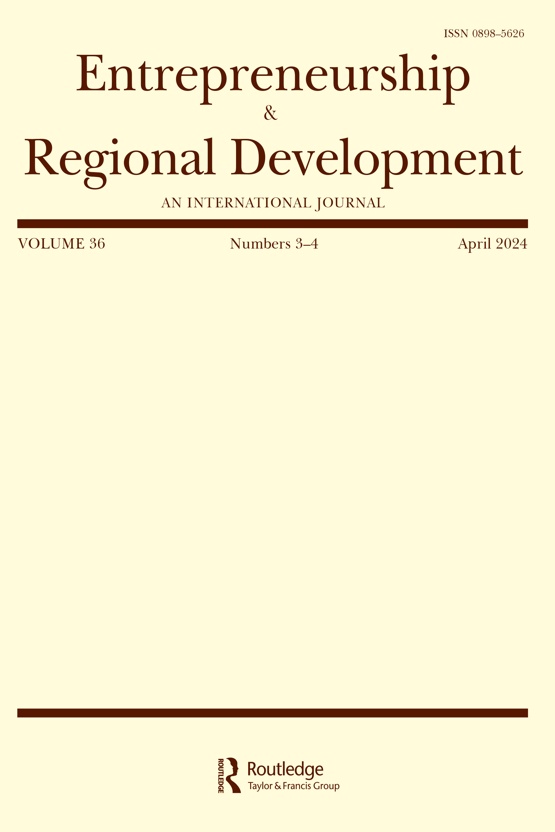出生顺序对创业的影响:来自中国的证据
IF 3.6
1区 经济学
Q2 BUSINESS
引用次数: 2
摘要
最近关于创业决定因素的研究表明,晚生的孩子更有可能成为企业家。然而,研究并没有解决出生顺序如何影响创业的问题。基于中国的背景,我们提出了两个相互竞争的假设,以探讨出生顺序对创业影响的潜在机制(风险承担与受教育程度)。我们进一步认为,出生顺序对创业的影响受到生育间隔和家庭经济状况的调节。利用2008年和2013年中国家庭收入项目的数据,我们发现,在中国,出生顺序对两种创业类型(即个人创业和雇主创业)的影响总体上是正的,这意味着风险承担机制比教育程度机制更占优势。出生顺序对个人创业的影响更为明显,但对雇主创业的影响较弱。我们还发现,在经济状况较差的家庭中,出生顺序对创业的正向影响更为明显。总的来说,这篇论文阐明了出生顺序如何影响创业倾向。本文章由计算机程序翻译,如有差异,请以英文原文为准。
The effect of birth order on entrepreneurship: evidence from China
ABSTRACT Recent studies on the determinants of entrepreneurship have shown that later-born children are more likely to become entrepreneurs. However, research has not addressed the questions of how birth order influences entrepreneurship. Based on the Chinese context, we propose two competing hypotheses to explore the potential mechanisms (risk taking vs. educational attainment) that explain the effect of birth order on entrepreneurship. We further argue that the effect of birth order on entrepreneurship is moderated by birth spacing and family financial status. Using data from the 2008 and 2013 Chinese Household Income Project, we find that in the case of China the impacts of birth order on two types of entrepreneurship (i.e. solo entrepreneurship and employer entrepreneurship) are overall positive, which implies that the risk-taking mechanism is more dominant than the educational attainment mechanism. Birth order shows a more pronounced impact for solo entrepreneurship but a weak impact for employer entrepreneurship. We also find that the positive birth-order effect on entrepreneurship is more evident in families with low financial status. Overall, this paper casts light on how birth order shapes the propensity for entrepreneurship.
求助全文
通过发布文献求助,成功后即可免费获取论文全文。
去求助
来源期刊
CiteScore
7.90
自引率
10.70%
发文量
52
期刊介绍:
Entrepreneurship and Regional Development is unique in that it addresses the central factors in economic development - entrepreneurial vitality and innovation - as local and regional phenomena. It provides a multi-disciplinary forum for researchers and practitioners in the field of entrepreneurship and small firm development and for those studying and developing the local and regional context in which entrepreneurs emerge, innovate and establish the new economic activities which drive economic growth and create new economic wealth and employment. The Journal focuses on the diverse and complex characteristics of local and regional economies which lead to entrepreneurial vitality and endow the large and small firms within them with international competitiveness.

 求助内容:
求助内容: 应助结果提醒方式:
应助结果提醒方式:


